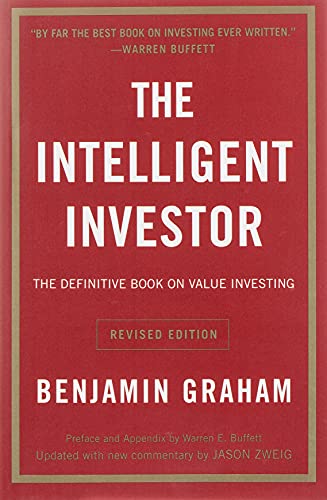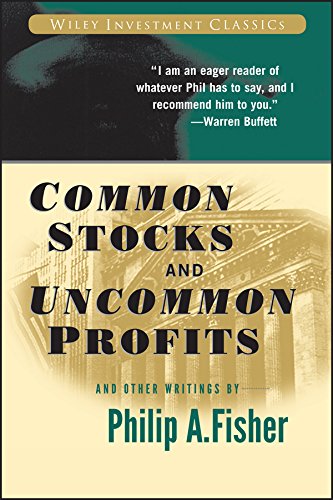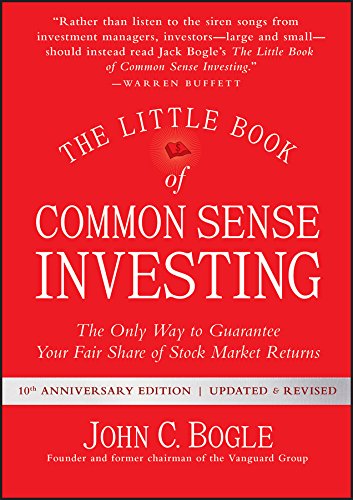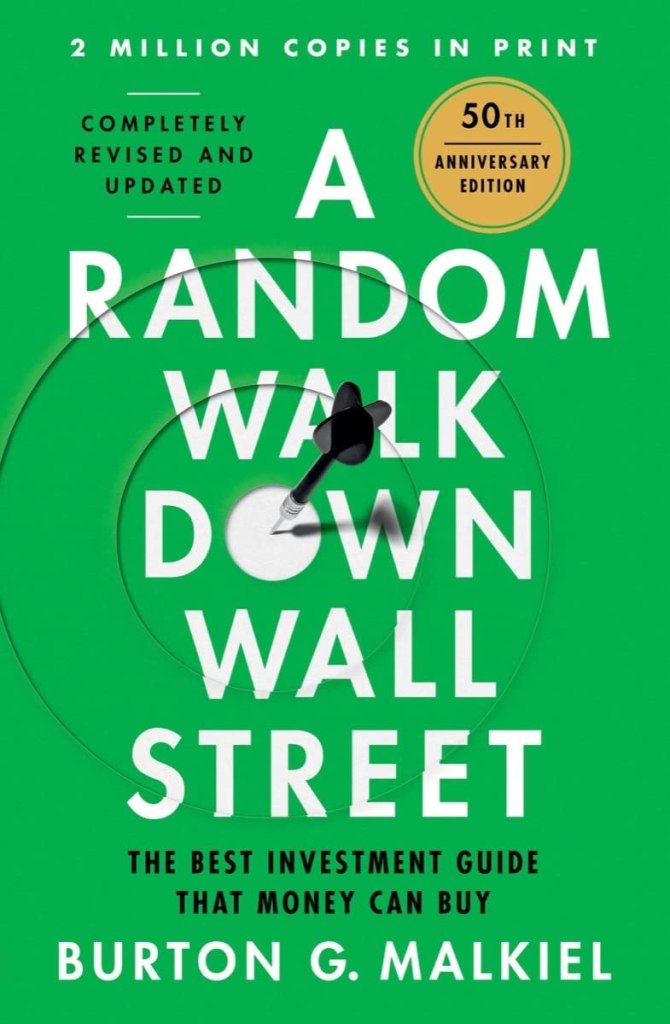For those seeking to navigate the intricate world of investments and secure their financial future, the right guidance can make all the difference. In this quest for prosperity, turning the pages of insightful investment books can be a transformative experience. Whether you’re a seasoned investor looking to refine your strategies or a novice eager to grasp the fundamentals, the world of investment literature offers a wealth of wisdom.
Join us as we explore “The Best Investment Books for Financial Success,” unraveling a curated selection that promises to empower, educate, and pave the way for a prosperous financial journey. From timeless classics to contemporary gems, these books are poised to become your indispensable companions on the path to financial mastery. Let the enlightening journey into the realm of investment literature commence, unlocking the keys to financial success.
The Power of Investment Books
Investment books hold immense power when it comes to shaping the minds of individuals interested in the world of finance and investment. Whether you are a novice or an experienced investor, the benefits of reading investment books are numerous and can contribute significantly to your financial knowledge and success. In this article, we will explore the advantages of investing your time and effort into reading investment books, regardless of your level of experience.
- Investment books provide valuable insights and knowledge that can enhance your understanding of financial markets, investment strategies, and economic principles. These books often cover a wide range of topics, including fundamental analysis, technical analysis, risk management, portfolio diversification, and investment psychology. By immersing yourself in the concepts and theories discussed in these books, you can gain a deeper understanding of the intricacies of investing, enabling you to make more informed and confident investment decisions.
- Investment books serve as a source of inspiration. They often feature real-life success stories of prominent investors and their journey to financial prosperity. These stories can be incredibly motivating, demonstrating that with the right knowledge, mindset, and dedication, anyone can achieve their investment goals. By reading about the experiences of successful investors, you can learn from their triumphs and failures, gaining valuable insights into their strategies and approaches.
By reading investment books, you can stay updated with the latest developments and trends in the financial industry. This ongoing learning process allows you to adapt your investment strategies to changing market conditions, improving your ability to capitalize on opportunities and mitigate risks.
Investment books are a powerful tool for individuals interested in finance and investment. They provide valuable insights, knowledge, and inspiration, enabling readers to enhance their understanding of financial markets, learn from successful investors, and develop their own investment strategies.
- The Power of Investment Books
- Key Criteria for Selecting Investment Books
- Building a Personal Investment Library
Key Criteria for Selecting Investment Books
When it comes to selecting investment books, it is essential to consider key criteria that can help you make the most out of your reading experience. By carefully choosing books that meet certain criteria, you can ensure that you are investing your time and effort in resources that are credible, relevant, and suitable for your individual needs. In this article, we will discuss the key factors to consider when selecting investment books.
- One crucial criterion is the credibility of the author. It is important to choose books written by authors who have a solid reputation and expertise in the field of finance and investment. Look for authors who have relevant professional qualifications, experience in the industry, or a successful track record as investors. This ensures that the information presented in the book is reliable and based on sound knowledge and expertise.
- Consider the relevance of the book’s content to your specific interests and goals. Investment books cover a wide range of topics, such as value investing, technical analysis, personal finance, behavioral economics, and more. Identify the areas of investment that you are particularly interested in or wish to learn more about, and look for books that focus on those subjects.
- Reading reviews from other readers can provide insights into the quality and usefulness of the book. Look for books that have positive reviews and recommendations from individuals who share similar interests or investment goals. However, keep in mind that personal preferences and perspectives can vary, so it’s important to consider multiple reviews and make an informed decision based on your own judgment.
Selecting the right investment books requires careful consideration of various factors. Look for books written by credible authors, relevant content that aligns with your interests, and positive reader reviews. Additionally, consider your own experience level and choose books that cater to your specific needs. By applying these key criteria, you can maximize the value of your investment reading and gain the knowledge and insights necessary to achieve your financial goals.
Top Classic Investment Books
“The Intelligent Investor” by Benjamin Graham is considered one of the most influential investment books of all time.

When it comes to classic investment books, certain timeless works have left a lasting impact on the investment community. These books have stood the test of time, providing valuable insights and principles that continue to guide investors today. We will review two of the most prominent classic investment books:
Published in 1949, it emphasizes the importance of value investing and provides a framework for sound investment decision-making. Graham introduces the concept of “Mr. Market,” emphasizing that investors should approach the stock market as a business owner rather than a speculator. He advocates for thorough fundamental analysis and a focus on the intrinsic value of investments. Graham’s book also introduces the concept of a margin of safety, which suggests that investors should only purchase stocks when their market price is significantly lower than their intrinsic value. “The Intelligent Investor” offers timeless wisdom on managing risk, diversification, and maintaining a disciplined investment approach.
Key takeaways from “The Intelligent Investor” include the importance of value investing, the concept of Mr. Market, the margin of safety principle, and the need for a rational and patient investment approach. Investors are encouraged to focus on the fundamentals of companies and consider the intrinsic value of investments rather than short-term market fluctuations.
“Common Stocks and Uncommon Profits” by Philip Fisher, published in 1958, focuses on the importance of qualitative analysis and understanding the underlying factors that drive a company’s success.

Fisher emphasizes the significance of long-term investment horizons and selecting companies with strong growth potential. He introduces the concept of “scuttlebutt,” which involves conducting thorough research and gathering insights from various sources to gain a deep understanding of a company’s prospects. Fisher’s book emphasizes the importance of investing in companies with strong management teams, innovative products or services, and sustainable competitive advantages. It encourages investors to focus on qualitative factors rather than solely relying on quantitative analysis.
From “Common Stocks and Uncommon Profits,” key takeaways include the significance of qualitative analysis, scuttlebutt research, and the identification of companies with strong growth potential and sustainable competitive advantages. The book also emphasizes the importance of active and thorough research to make informed investment decisions.
These classic investment books have enduring relevance and continue to shape the investment community. Both “The Intelligent Investor” and “Common Stocks and Uncommon Profits” highlight the importance of a disciplined approach to investing, emphasizing the need for thorough analysis and long-term thinking.
Both books stress the significance of investor behavior, risk management, and the need for a long-term perspective. They provide timeless advice that remains applicable to investors of all experience levels.
Modern Investment Books
“The Little Book of Common Sense Investing” by John C. Bogle, published in 2007, advocates for the simplicity and effectiveness of index investing.

In recent years, several modern investment books have gained significant popularity among investors. These books offer fresh perspectives, innovative ideas, and updated research findings that reflect the evolving landscape of finance and investment practices. We will explore two prominent modern investment books: “The Little Book of Common Sense Investing” by John C. Bogle and “A Random Walk Down Wall Street” by Burton G. Malkiel.
Bogle, the founder of Vanguard Group, promotes the idea that investors can achieve satisfactory long-term returns by investing in low-cost, passively managed index funds. He emphasizes the importance of diversification, minimizing costs, and adopting a long-term perspective. The book presents compelling evidence that the majority of actively managed funds fail to outperform the broader market over the long term. Bogle’s book is highly regarded for its straightforward approach and is often recommended as a foundational read for novice investors.
“A Random Walk Down Wall Street” by Burton G. Malkiel, first published in 1973 and regularly updated, challenges the notion of successfully beating the market through stock picking and market timing.

Malkiel argues in favor of a passive investment strategy, suggesting that investors are better off investing in low-cost index funds or exchange-traded funds (ETFs). He explores the efficient market hypothesis and advocates for a diversified portfolio aligned with an investor’s risk tolerance and investment goals. The book delves into various investment vehicles, including stocks, bonds, real estate, and alternative investments, providing readers with a comprehensive understanding of different asset classes and their characteristics.
These modern investment books reflect the changing landscape of finance and investment practices. They emphasize the benefits of passive investing, low-cost index funds, and the importance of diversification. Both books advocate for a long-term perspective, cautioning against excessive trading and market timing strategies.
Readers can apply the concepts and principles presented in these books to their own investment journeys. They can gain insights into the advantages of index investing, the potential pitfalls of active management, and the importance of disciplined investing. By embracing low-cost, diversified investment strategies aligned with their risk tolerance and goals, readers can set a solid foundation for long-term investment success.
In conclusion, modern investment books like “The Little Book of Common Sense Investing” and “A Random Walk Down Wall Street” offer innovative ideas, research findings, and investment strategies that reflect the changing landscape of finance. These books provide valuable insights into passive investing, index funds, and the benefits of a long-term perspective. By applying the principles outlined in these books, readers can make informed investment decisions and set themselves on a path toward financial success.
Niche Investment Books
Niche investment books cater to specific investment approaches and provide in-depth insights into specialized areas of finance. These books offer unique perspectives, strategies, and guidance for readers who have specific investment interests or goals. We will explore the significance of niche investment books and the value they provide.
Niche investment books cover a wide range of specialized topics, such as real estate investing, options trading, ESG (Environmental, Social, and Governance) investing, and more. These books delve deeply into the intricacies of their respective niches, offering detailed analysis, case studies, and practical advice. They provide readers with a specialized understanding of specific investment approaches and offer strategies that can be applied in those particular areas.
Furthermore, diversifying reading material by incorporating niche investment books is crucial for gaining a broader understanding of different investment approaches. While classic and modern investment books offer valuable insights into general investment principles, niche books provide specialized knowledge and expertise that can complement and enhance an investor’s overall understanding. By exploring various niches, readers can gain a comprehensive view of the investment landscape and potentially discover new investment opportunities.
Building a Personal Investment Library
Building a personal investment library is a valuable endeavor for individuals looking to expand their knowledge and improve their investment skills. A well-curated collection of books can provide diverse perspectives, insights, and strategies that contribute to informed decision-making. We will provide tips on building a personal investment library and offer recommendations for additional resources to supplement book reading.
- When building a personal investment library, it is essential to cover a range of investment topics and perspectives. Start by selecting classic investment books that have stood the test of time, such as “The Intelligent Investor” by Benjamin Graham or “A Random Walk Down Wall Street” by Burton G. Malkiel. These books offer foundational knowledge and timeless principles. Additionally, include modern investment books that reflect the current investment landscape and address contemporary investment approaches.
- Consider adding niche investment books to your library to gain specialized knowledge in specific areas of interest, such as real estate investing, options trading, or sustainable investing. These books can provide unique insights and strategies tailored to your specific investment goals.
- In addition to books, supplement your reading with other resources such as investment websites, blogs, and podcasts. These mediums offer real-time market analysis, expert interviews, and up-to-date information that can complement your book reading. Websites like Investopedia, Morningstar, and The Motley Fool provide valuable investment resources, while investment blogs and podcasts offer diverse perspectives and discussions.
- To effectively utilize your investment library, create a reading plan and dedicate regular time for continuous learning. Set goals for reading a certain number of books or chapters each month and commit to a consistent reading schedule. This approach ensures that you make progress in your learning journey and stay engaged with the material.
Remember, building a personal investment library is an ongoing process. Continuously seek new additions to your collection and stay updated with the latest releases in the investment world. Join investment communities, participate in book clubs or discussion groups, and share recommendations with fellow investors to expand your library further.
Building a personal investment library is a valuable investment in your knowledge and skill development. By selecting a diverse range of books covering classic and modern investment principles, as well as niche topics, you can gain a comprehensive understanding of different investment approaches. Additionally, supplement your reading with investment websites, blogs, and podcasts to stay informed and up-to-date.
Create a reading plan and commit to continuous learning to make the most of your investment library. By investing in your education, you enhance your ability to make informed investment decisions and navigate the complexities of the financial world.
Conclusion
Investment books serve as valuable guides on the path to financial success. By exploring the best investment books available, you can gain insights from seasoned investors, learn valuable strategies, and develop a solid foundation of knowledge to navigate the complex world of finance. Remember, investing in your education is an investment in your future.


Leave a comment